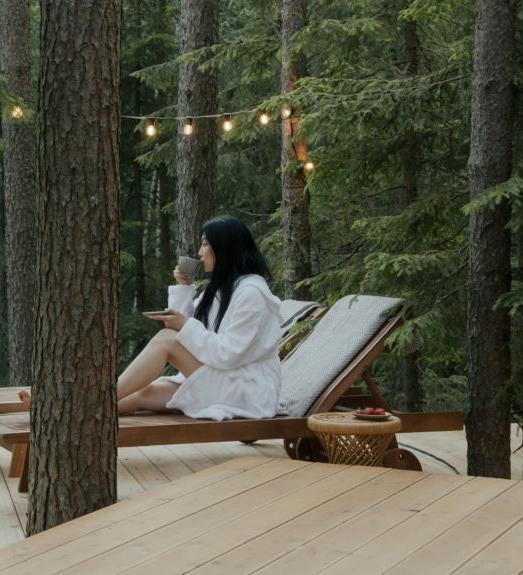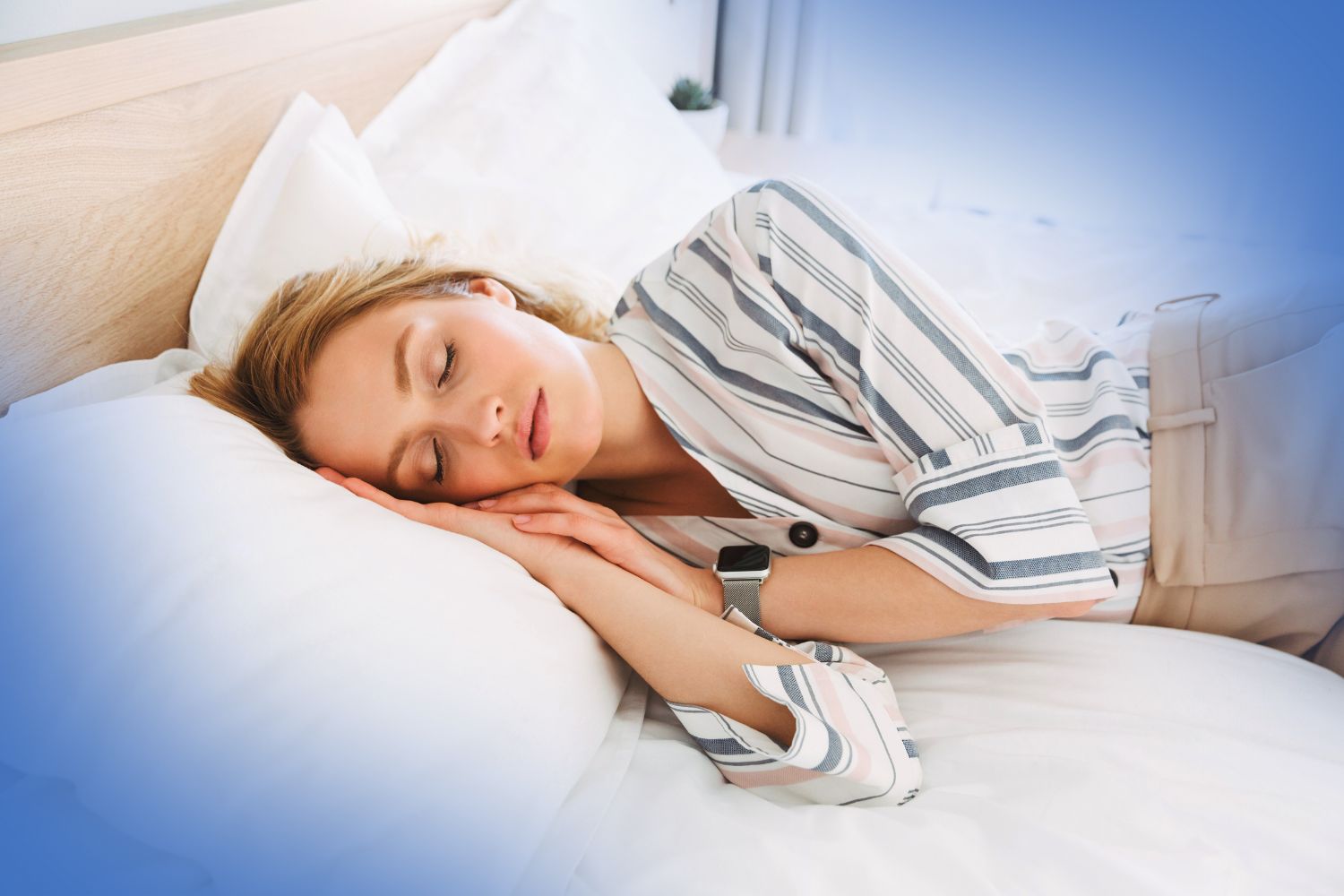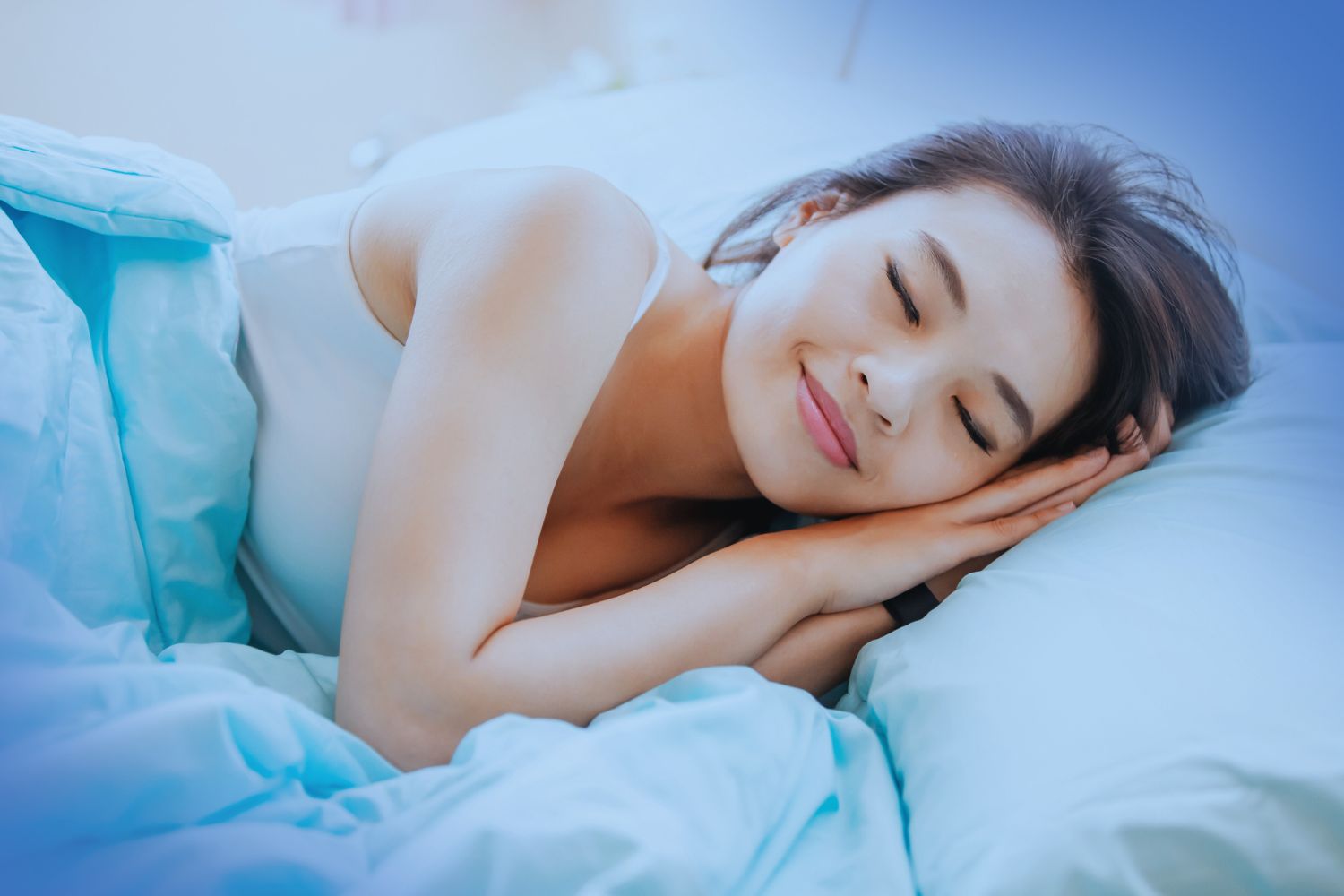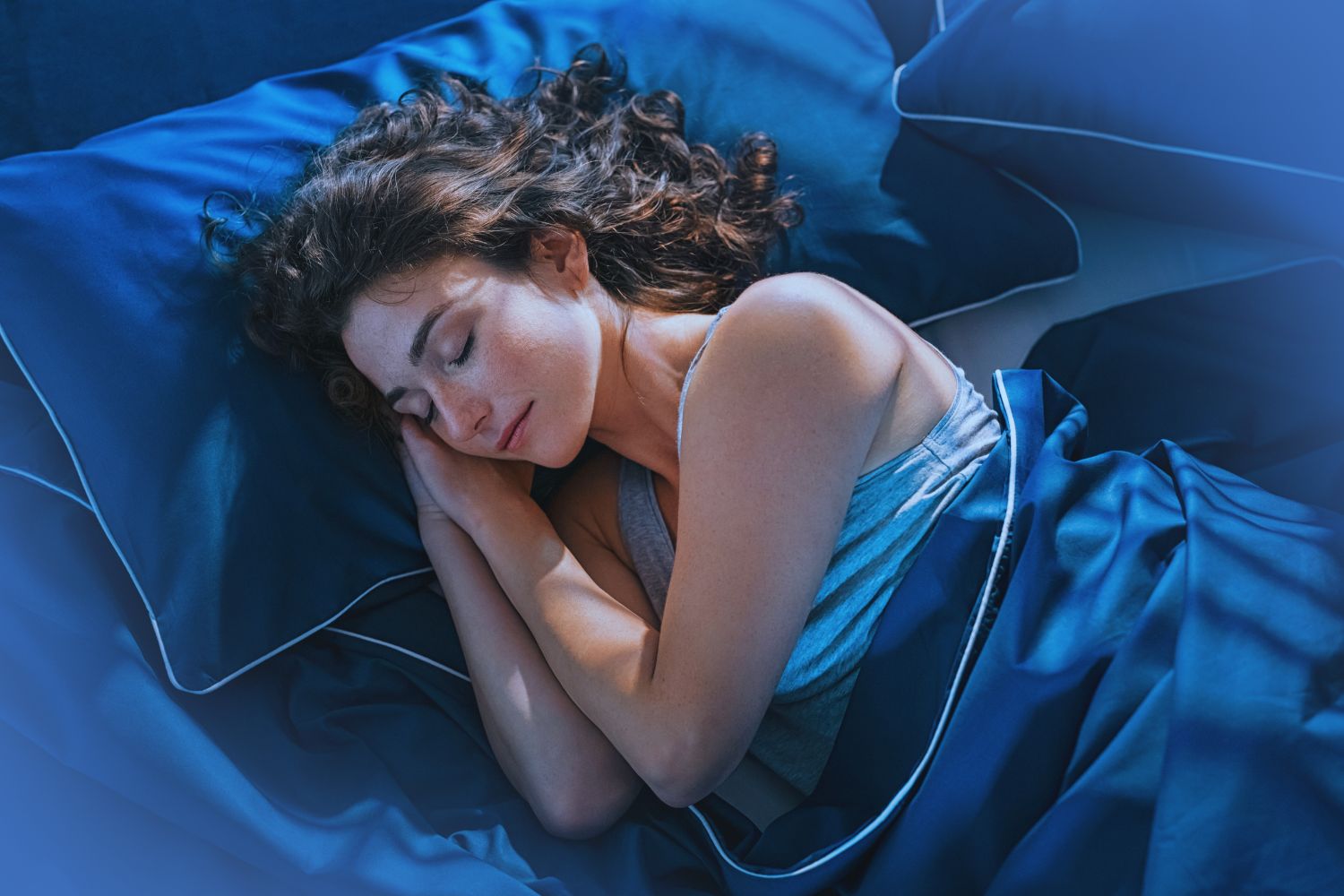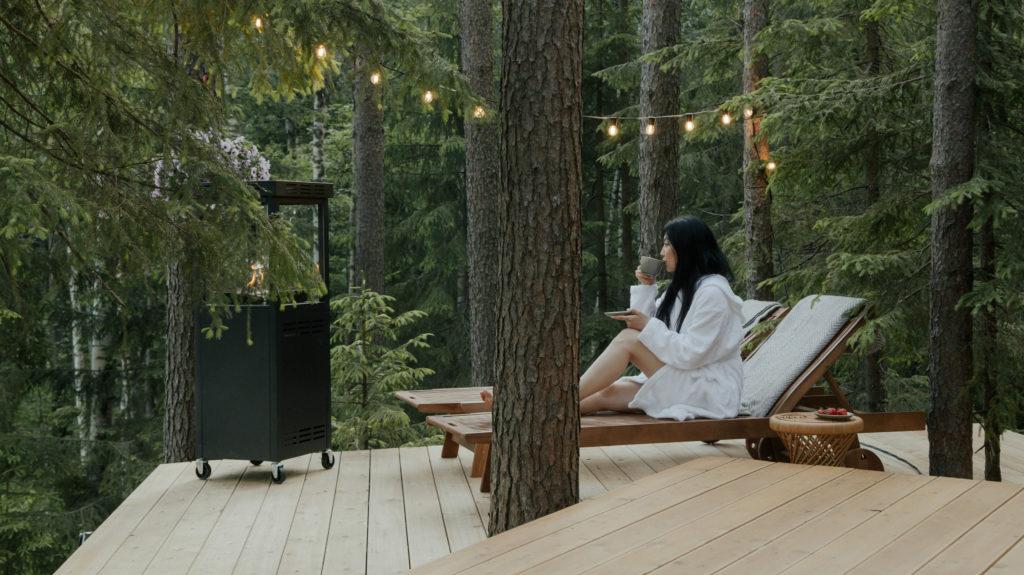
"When I drink tea I am conscious of peace. The cool breath of heaven rises in my sleeves, and blows my cares away"
Lo Tung
Tea for Better Sleep
Today we continue our quest for the best relaxation techniques to help you get a good night’s sleep. We last looked at Relaxing Scents; now we’re focusing on the ancient practice of the Tea Ritual: why it helps you relax—and how to create your own experience with tea for better sleep. Tips on “sleep” blends; an unusual recipe to make at home… and you’re on your way to relaxation and getting the sleep you need.
Relaxing for Better Sleep
So many of us have trouble falling asleep; millions in fact. Life makes demands on us all and some of those demands follow us to bed at the end of the day. Learning to let go of troubling thoughts, so we can relax and be able to fall asleep is key to preserving our health. We all need to remember this is a necessity, not an indulgence. Take charge of your stress; it will help you sleep better, feel better, and live better—maybe even longer.
Begin with a "Cuppa"...
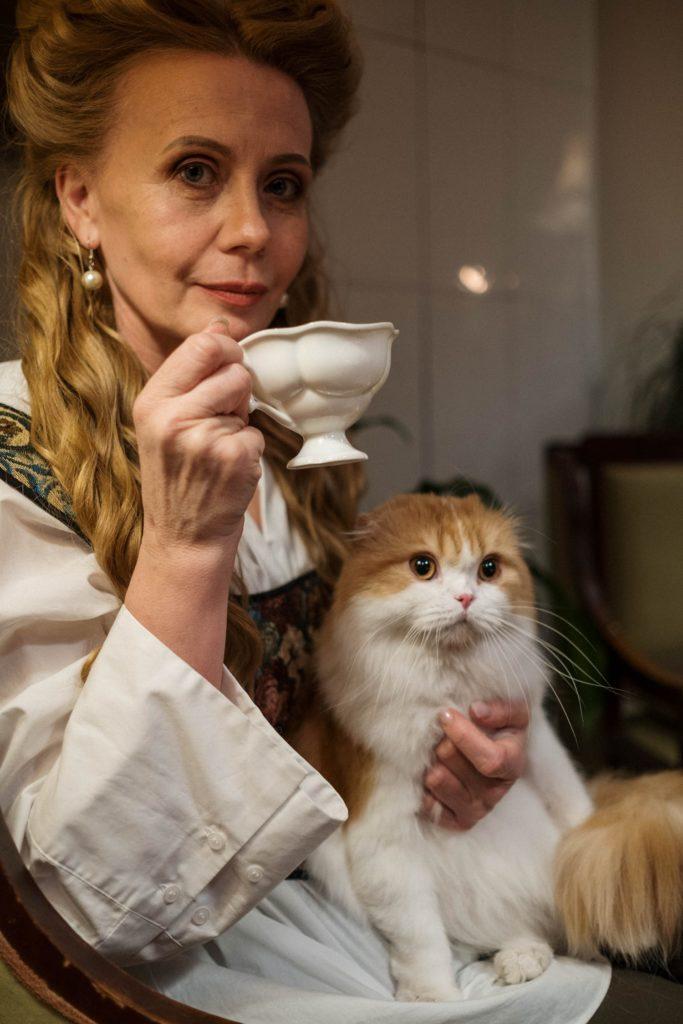
"As the sky prepares to settle its tired, aching feet into the night’s velvet slippers... I settle, into my armchair, soaking the teabag, of my thoughts, into warm liquidy stars.” ― Sanober Khan
Your Journey to Better Sleep
While you may need more than a cup of tea to kick-start your sleep, this can be a lovely way to begin your better sleep regimen. Brew up a cup, relax a bit, and follow your heart to create a regular wind-down routine—make sure to include activities that bring you peace and pleasure. Discovering the right activity, or combination of activities that get you to that happy, relaxed and sleepy state can be a pleasant journey in itself. Once there, your mind and body will have calmed so you can transition into restful sleep.
How to Begin? Log-in...
Regular nightly rituals have proven helpful in establishing and maintaining effective sleep patterns. The sooner you begin, the sooner you’ll be getting quality shut-eye. Set yourself up for success by creating practices that you can stick with. If you aren’t already using one, this is a great time to begin a Better Sleep Journal.
Why Sleep Journals Work
Sleep Journals/Diaries are often used in conjunction with medical evaluation and treatment. If you are experiencing sleep deficiency that requires medical assistance, this journal will be a helpful resource for your doctor or sleep specialist. For you, it may provide a quicker path to recognizing and correcting behaviors that may be inhibiting your sleep. For instance, are you unknowingly stimulating your brain with too much information before bed? Are you exercising too late in the day? Do certain foods, or medications interfere with your quality of sleep?
Engage with your Sleep Journal Regularly
Your Better Sleep Journal can be anything you want it to be; but its main purpose is to record your journey to better sleep.
This might include:
- Setting a routine to accomplish your sleep goals
- Noting how certain foods/drinks, exercise, and other daily practices affect your sleep pattern
- Recording your thoughts or working through the day’s events
- Jotting down a sleep tea recipe or a tea blend you would like to try
- Expressing gratitude for the good things in your life
Log into your Sleep Journal nightly; it will help you assess your progress and stay on track.
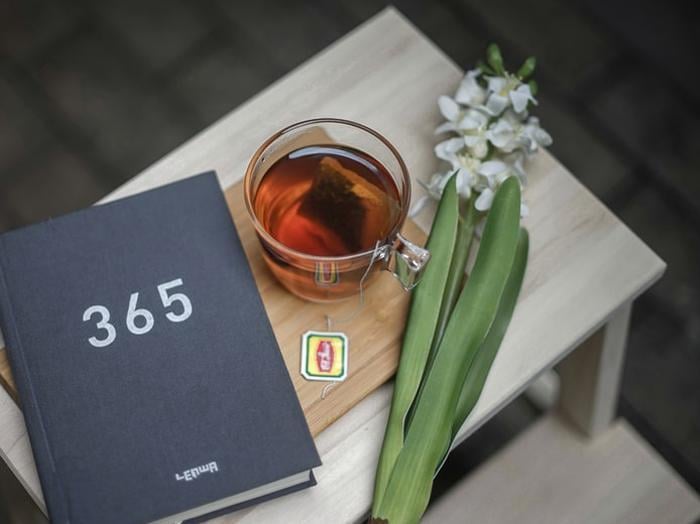
Designing your Better Sleep Ritual
First determine your ideal bedtime; then you must commit to it. This means you are in bed, lights out, and ready for sleep. No blue light devices, no nagging, random thoughts running around in your head. It also means you keep to the same schedule on weekends.
Next, how much sleep does your body need? By now, no one knows your body’s needs better than you. While 7-8 hours of uninterrupted sleep is the general recommendation, you may need slightly less—or a little more. Not everyone’s needs are the same and sleeping too long can have its drawbacks as well. Determine what time you should get up each morning and make it your regular routine.
You need to get the same number of hours of sleep each night to establish the perfect rhythm for your body. If you feel like sleeping in on weekends, limit it to an hour… or just try lazing in bed for a bit. Maybe read through your journal, reflect on an interesting dream, or be proactive and do some healthy morning wake-up stretches. The more diligent you are in sticking to your sleep schedule, the more successful your better sleep ritual will be.
When to begin your wind-down
Calming your mind and body before bed is sure to provide more restful, rejuvenating sleep; invest the time now in perfecting the right plan. Be patient, as it may take some time to develop just the right routine for your bedtime ritual. Again, each person’s body is different; listen to yours. On average, you should plan to begin your wind-down at least 30 minutes prior to your now scheduled bedtime. That said, some people are able to unwind in only 15 minutes—while others need at least an hour.
Including Tea in your ritual
When incorporating tea into your better sleep ritual, make sure to have it early if you normally need to limit liquid intake before bed. A fabulous blend to consider is Earl Grey.
While not generally considered as a tea for sleep, Earl Grey's main ingredient, Bergamot, eases stress and calms the brain. And, in addition to being delicious, this beloved tea-favorite provides a multitude of health benefits including keeping you well-hydrated.
Note: Dehydration can interfere with your sleep; likewise, poor sleep can increase your chance of becoming dehydrated. Find the balance that’s right for you to avoid mid-sleep trips to the bathroom or waking up feeling dehydrated.
Caffeine at bedtime - Fact or MYTH?
If you don’t care for the taste of decaffeinated tea blends, we have some good news—a recent study has shed new light on caffeinated beverages. As reported in the UK publication, The Independent, a 2019 study does not support the previously-held belief that caffeine interferes with sleep. Observing 785 people for a period of 5,164 days and nights, researchers from Harvard Medical School and Florida Atlantic University, monitored caffeine, alcohol and nicotine consumption.
Using sleep journals and wrist monitors, they recorded sleep duration, sleep efficiency; and noted how quickly participants awakened after consuming each of these substances. They were surprised to find caffeine seemed to have no effect. Looks like nicotine didn’t fare as well though (a pre-bed cigarette was shown to decrease sleep duration in insomniacs by 42 minutes.)
Expert opinion...
An earlier article in the Independent, features Sleep Expert, Dr. Neil Stanley who lists a number of Sleep Facts and Myths. Here’s what he had to say about caffeine and sleep: “Some people are very sensitive to the effects of caffeine and for these people it’s important to avoid drinking beverages containing caffeine too close to bedtime— but there is no golden rule about this, just listen to your body…
“For some people the effects caused by caffeine are much lower and may not have any effects at all. If you have been drinking two strong black cups of coffee every evening for the past 40 years and you have just developed a sleeping problem, then it is almost certainly not the coffee.” - Dr. Neil Stanley, Sleep Expert
De-stress reinforcement...
The importance of de-stressing before bed received reinforcement in that same article with Dr. Stanley declaring this a FACT:
“In order to get to sleep you need three things: a bedroom conducive to sleep, a relaxed body, and most importantly a quiet mind. You can’t go to sleep if your mind is racing and so anything you can do to slow it down will help you sleep.”
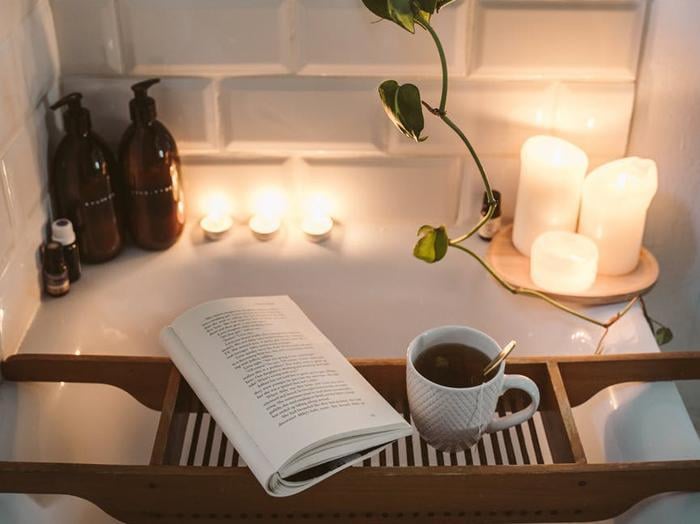
As Dr. Stanley points out, it doesn’t matter so much what you do to relax—it’s only important that you find something to stop you worrying about the stresses of your day. One suggestion…
Chamomile Tea
Not a true tea, but rather an herbal tea (also known as a tisane,) Chamomile tea is made from the petals of the chamomile plant. Its long history goes back to ancient societies who used flowers and herbs medicinally and it is still used to treat a number of health issues today. Most people find the taste of this tea pleasing—in fact it is often used as a flavoring in true tea blends like black and green teas. When consumed in the evening, chamomile tea’s relaxing effect is famously known to benefit sleep.
More Teas for Better Sleep...
Lavender: Yes! You can drink lavender as a tea; it will help you relax you so you can fall asleep. It may also reduce awakenings during the night.
Lemon Balm: Add this tea to your evening routine to help reduce stress and anxiety— so you can fall asleep and stay asleep.
Passionflower tea: A single cup of this delightfully mild tea relieves anxiety and puts you in a state of calm relaxation so you can get better quality sleep.
Peppermint: with its lovely scent, works as a muscle relaxant; calming your nerves before bedtime. It also helps to reduce symptoms of indigestion that might otherwise prevent falling asleep.
Valerian Root:Studies have shown as much as 90% improved sleep after drinking Valerian tea. *It has an intense scent & taste— try a little honey or maple syrup to make it a more pleasant option.
The Power of the Tea Ritual
Sometimes referred to as the elixir of the ages, tea is a wonder in and of itself; its healing powers have been touted for centuries. Many cultures and societies have elevated tea drinking from simple consumption of a nutritional substance to an experience not to be taken lightly.
Schedules come to a standstill for “tea time.” One has their favorite tea cup, favorite tea pot; some even have a tea kettle reserved for just their tea. It is the second most widely consumed beverage world-wide following water; and a multi-billion-dollar industry ($186.67 billion US dollars in 2020 alone.)
There are tea parties, tea sandwiches, and all manner of tea doo-dads—perhaps most surprising is the volume of tea poems. Chinese literature alone boasts more than forty-eight thousand surviving poems by 20,000 poets—and that’s just from the Tang dynasty. What is this magical power of tea? What inspires the revered tea ritual?
I
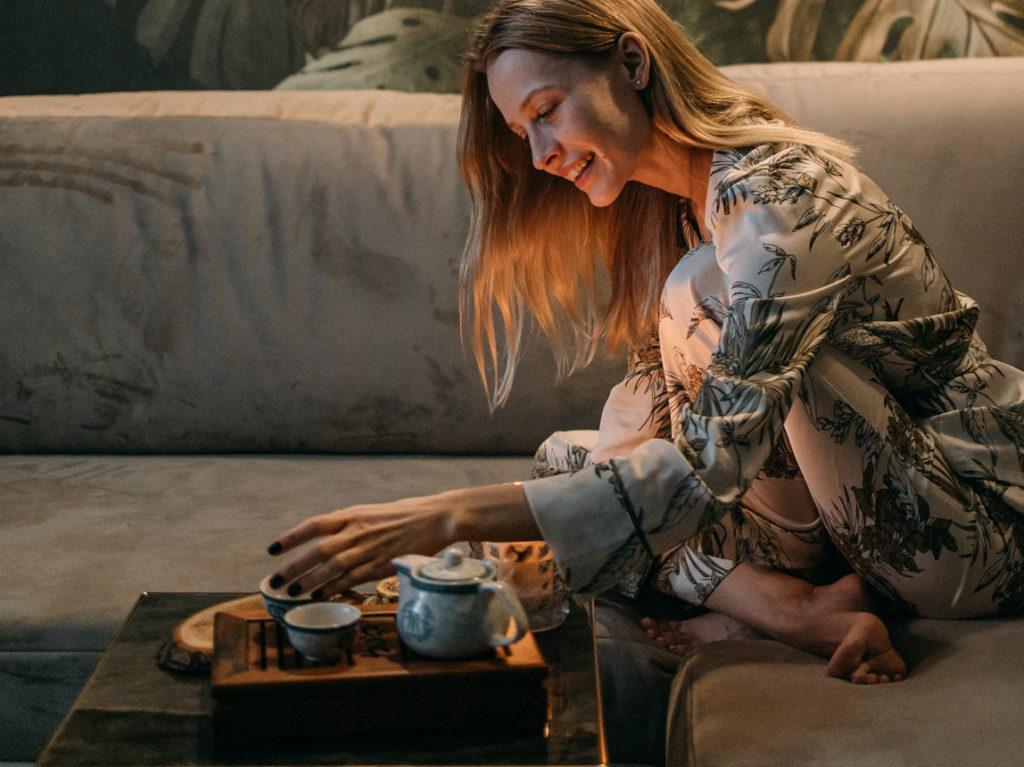
It's all about YOU
The tea ritual is a path to better communication with yourself; and thereby helps elevate your self-care. The healing powers of tea are magnified when they combine with your intentional preparation and consumption. This simple practice doesn’t need to take a lot of time; doesn’t require anything “fancy” beyond your preferences—and isn’t necessarily “new-age-y.” It’s just a timeless and rather beautiful way to enhance the way you care for you. Studies show these small regular moments of self-care are much more impactful on wellness than big celebratory moments.
Learning to slow down for a moment while you prepare and drink a cup of tea is a powerful self-care tool. Find ways to personalize this ritual to suit your needs; connect with your culture, use a cup that’s special to you. Play some music. Light a scented candle. Take your time—and don’t get hung up on the details. The only plan you’re following is yours; no one to impress and no one to answer to. And the beauty of tea rituals is the not-to-be-rushed pace—not in the making or the consuming of it.
Remember, this healing experience is simply about making time in your day to take care of you—finding moments to relax and rejuvenate. It’s about recognizing your value and needs; from the physical to the spiritual. It will support your natural need to find structure and regularity when life gets a little chaotic—and ultimately it will help you relax so you can get the sleep you need.
When the world is all at odds, and the mind is all at sea.
- ANONYMOUS
Then cease the useless tedium, and brew a cup of tea.
There is magic in its fragrance, there is solace in its taste.
And the laden moments vanish, somehow into space.
The world becomes a lovely thing, there’s beauty as you’ll see.
All because you briefly stopped to brew a cup of tea.
G
Go Bananas for Tea!
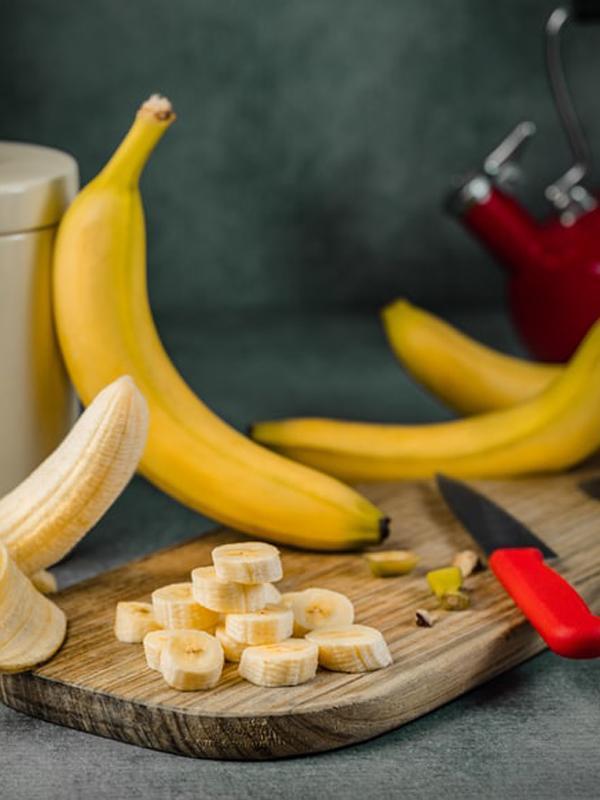
One final tea for better sleep...
We came upon a tea not widely known and think it rounds out our sleep teas nicely. Banana Tea is a mildly sweet infused drink made from whole bananas boiled in water. Because it takes longer to brew with the peel on, the skin is often removed in favor of more immediate gratification. When the boiling is complete, the fruit is removed from the water and the liquid is ready to be consumed piping hot. Cinnamon and honey are commonly used to enhance the flavor.
Why this unusual concoction?
Banana tea has become popular as a sleep aid because it contains the sleep-promoting nutrients potassium, magnesium and tryptophan.While there’s no data to confirm the effectiveness of this tea, there are many who claim it works wonders for sleep. If you decide to give it a try, we’d love to hear from you—drop a comment and let us know how it works!
Here are the simple instructions for brewing Banana Tea at home:
- Gather 1 banana, 1 small pot of water, and a sprinkle of cinnamon
- Place water in a pan and let it boil.
- Cut both ends off the banana
- When the water comes to a rolling boil, drop the whole banana in the pan.
- Let it simmer for 10-15 minutes. Add a dash of cinnamon.
- Turn off the stove. Pour the tea through a strainer to discard the fruit and peel.
- Pour the tea into your favorite cup or mug and enjoy an hour before bedtime!
Tickle your Funny Bone...
Sometimes, humor is the best key to reaching relaxation, so we’ll close with a quote from this “Good Read…”
“Nowadays, people resort to all kinds of activities in order to calm themselves after a stressful event: performing yoga poses in a sauna, leaping off bridges while tied to a bungee, killing imaginary zombies with imaginary weapons, and so forth. But in Miss Penelope Lumley's day, it was universally understood that there is nothing like a nice cup of tea to settle one's nerves in the aftermath of an adventure—a practice many would find well worth reviving.”
― Maryrose Wood, The Hidden Gallery
Hope you’ve enjoyed this exploration of Tea for Better Sleep! Check back in a couple of weeks for the next installment of How to Relax for Better Sleep—meanwhile, give some thought to that Sleep Journal…
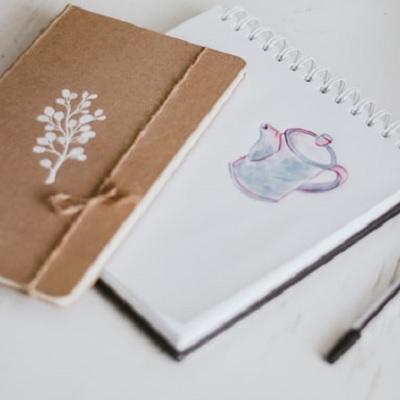
Wishing you a wonderful and blessed Thanksgiving — and as always, hope you're getting the Best Sleep Ever!

